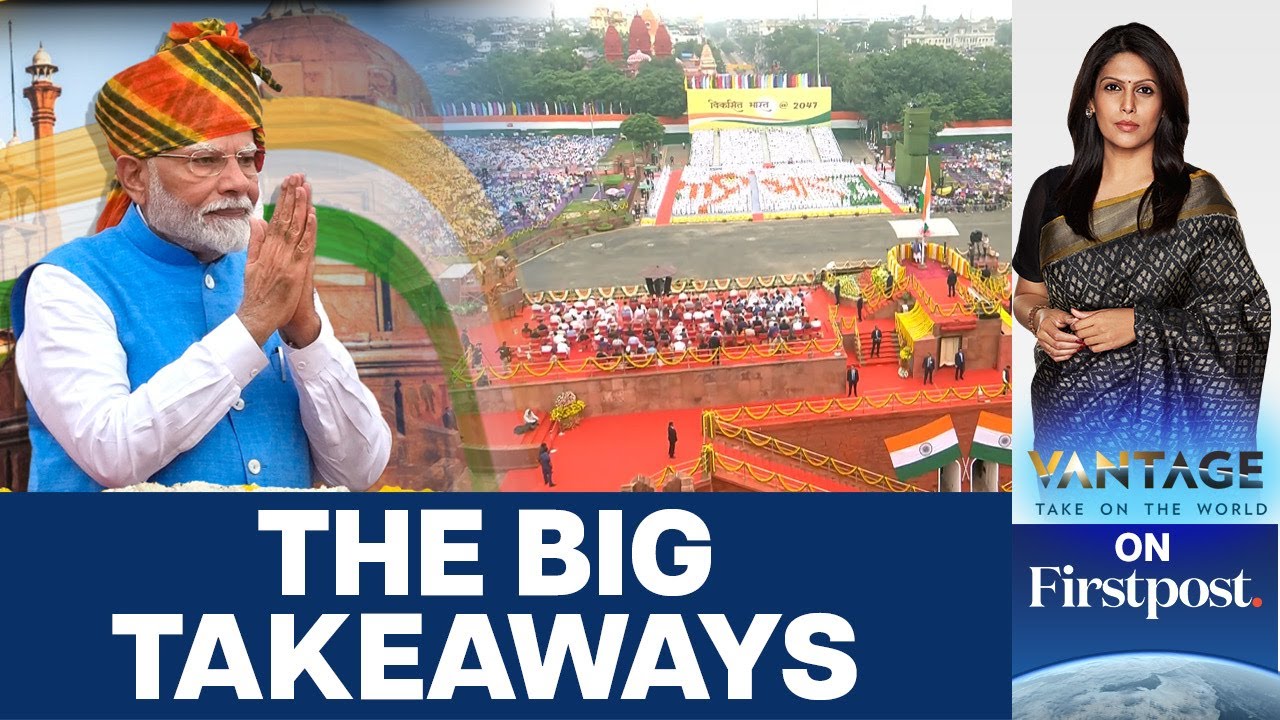The surprising results of India’s election
Summary
TLDRIn this episode of 'Trending Globally' by the Watson Institute at Brown University, host Dan Richards delves into India's recent elections, where Prime Minister Narendra Modi's BJP faced a surprising reduction in seats. The discussion with political scientist Ashutosh Varshney explores Modi's background, the rise of Hindu nationalism, and its implications for India's democracy. The episode also touches on the BJP's relationship with the RSS, the potential impact of coalition governance on Hindu nationalist policies, and the broader global context of nationalist leaders. Insights are shared on how these changes might influence India's domestic policies and its relationship with the U.S.
Takeaways
- 🗳️ India held the largest democratic election in history with over 640 million voters.
- 📅 The election lasted 44 days, involved 15 million polling staff, and had 1 million polling stations.
- 🔹 Narendra Modi's party, BJP, was expected to dominate but fell short of expectations.
- 🤝 Modi will have to rely on smaller parties for support, marking a shift to a multi-party coalition.
- 🕌 The election results impact the Hindu nationalist movement led by Modi.
- 🌍 Ashutosh Varshney from Brown University provides analysis on the surprising election outcome.
- 📉 The Congress party's decline in popularity since the late 1980s helped the BJP rise.
- 🧲 Modi's personal charisma and incorruptible image contributed to his political success.
- 📜 Modi's governance faced criticism for democratic backsliding and anti-Muslim policies.
- 🇮🇳 The election outcome suggests a potential shift in India’s treatment of minorities and constitutional governance.
- 🌐 India's relationship with the US remains strong due to geopolitical strategies against China.
- 🔄 The global trend of nationalist leaders might be losing momentum, as seen in India's election.
Q & A
What were the key statistics of India's largest democratic election?
-Over 640 million people voted in India's election, which took 44 days, involved 15 million polling staff, and had 1 million polling stations to fill 543 seats in Parliament.
What was the outcome of India's recent election for Prime Minister Narendra Modi and his party BJP?
-Prime Minister Narendra Modi claimed victory, but his party, BJP, fell short of expectations and did not win an outright majority, needing to rely on smaller parties for support.
Who is Narendra Modi, and what is notable about his background?
-Narendra Modi comes from a very underprivileged background and did not have the privilege to study at prestigious universities. He was homeschooled and moved up the hierarchy through the RSS, an organization committed to Hindu nationalism.
What is the RSS, and how did it influence Narendra Modi?
-The RSS, or Rashtriya Swayamsevak Sangh, is nearly 100 years old and promotes the idea of Hindu primacy in India. It is a cultural organization that believes in making politics and society more Hindu-centric. Modi joined the RSS as a teenager and was trained through its programs.
What is the relationship between the RSS and the BJP?
-The BJP is considered the political arm of the RSS. Many core BJP leaders, including Modi, were trained in the RSS, though not all BJP leaders come from the RSS.
How did Hindu nationalism rise to popularity in India?
-Hindu nationalism was not always popular. It was a fringe movement until around 1989 when the decline of the Indian National Congress's legitimacy due to corruption created room for new ideas. The BJP filled this gap with culturally and religiously defined proposals.
What role did Narendra Modi's personal characteristics play in his political success?
-Modi's profound charisma and the fact that he is single, without a family to benefit from political corruption, made him very attractive to voters, especially against a backdrop of widespread political corruption.
What actions has Modi taken that align with Hindu nationalist policies?
-Modi's government has passed several laws targeting Muslims, including removing the special status of Kashmir, passing a citizenship law that excludes Muslims from neighboring countries, and enacting 'love jihad' laws to prevent Muslim men from marrying Hindu women.
What were some reasons for the BJP's underperformance in the recent election?
-Concerns among voters about constitutional changes and the potential erosion of democratic principles, such as affirmative action for lower castes and the treatment of Muslims, contributed to the BJP's underperformance.
What are the potential impacts of the election results on India's governance?
-The need for coalition governance will dilute the ideological purity of Modi's policies, reduce centralization of power, and revive federalism. Aggressive Hindu nationalist policies toward Muslims will likely decrease to maintain coalition stability.
How might the election results affect India's relationship with the United States?
-The close relationship between India and the United States, seen as a counterweight to China, will likely remain unaffected by the election results, regardless of Modi's Hindu nationalist agenda.
Outlines

This section is available to paid users only. Please upgrade to access this part.
Upgrade NowMindmap

This section is available to paid users only. Please upgrade to access this part.
Upgrade NowKeywords

This section is available to paid users only. Please upgrade to access this part.
Upgrade NowHighlights

This section is available to paid users only. Please upgrade to access this part.
Upgrade NowTranscripts

This section is available to paid users only. Please upgrade to access this part.
Upgrade NowBrowse More Related Video

What Do the Indian Election Results Mean for Modi, Congress, and Pakistan? | Faisal Warraich

Narendra Modi, a divisive politician - Portrait of the Hindu Nationalist Party BJP leader

ByPoll Election Results A Shocker for Modi? | Ajeet Anjum - Ravish सच सुन लो | Sanjay Dixit

India election 2024: Explained in maps

India election: Narendra Modi set for third term but opposition still to concede | BBC News

Modi on Independence Day: Uniform Civil Code, Economy, Olympics & More | Vantage with Palki Sharma
5.0 / 5 (0 votes)